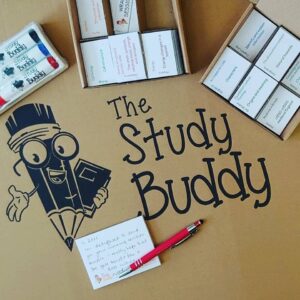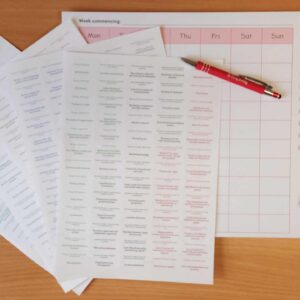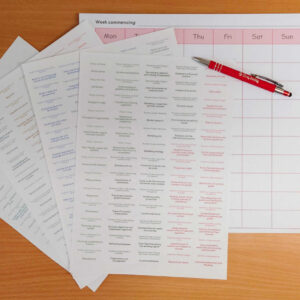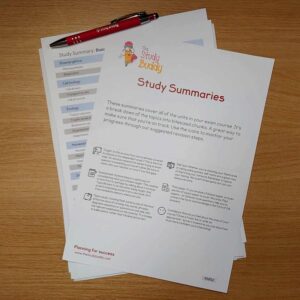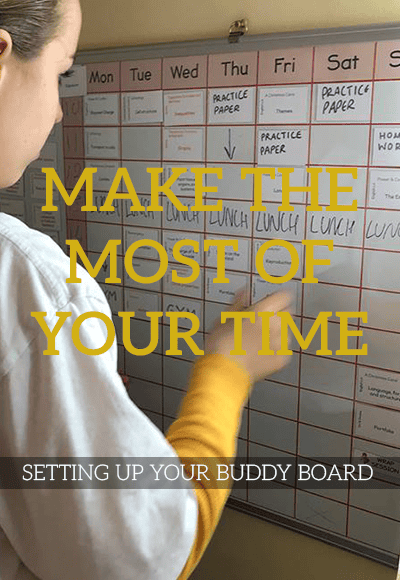You’re up to your eyes in revision schedules and practice papers. So it’s little wonder we often forget a crucial element that underpins success in exams: nutrition and self-care.
Nutrition and self-care are the fuel that powers your brain and overall well-being during this demanding time. Ignoring it is like trying to run a car on empty – it simply won’t perform at its best.
Nourishing your teen with the right foods and encouraging small moments of self-care can make a significant difference in their ability to focus, retain information, and manage stress. Let’s explore some practical and manageable ways to weave good nutrition and well-being into your exam period routine.
Nutrition for Performance
- Fuel for the Task at Hand: It is important to tailor nutrition to the activity or task, whether it’s a physical activity or an exam. For exams, this means avoiding high-energy foods like chocolate, white rice, or white pasta, which cause blood sugar spikes followed by crashes. Instead, focus on slow-release foods that provide sustained energy throughout the day.
- Balanced Diet: A balanced plate is essential, comprising whole-grain carbohydrates, proteins, fats, and colourful vegetables rich in vitamins and minerals. These nutrients support bodily functions, brain health, and overall performance. Omega-3 fatty acids from oily fish are particularly beneficial for brain cell growth and connectivity, while antioxidants from foods like blueberries and dark green vegetables help reduce stress and inflammation.
- Hydration: Staying hydrated is critical for cognitive function. Even a 2% loss in body weight due to dehydration can impair thinking and processing abilities. While water is ideal, no-added-sugar squash or tea can also be consumed. However, overhydration should be avoided, as it can lead to imbalances. Adding mineral salts to water can help maintain hydration levels.
- Caffeine: We often associate coffee with urgent study tasks. And caffeine can aid alertness and cognition, but should be consumed in moderation. Its half-life is approximately four hours, so consuming caffeine late in the evening can disrupt sleep. Avoid caffeine after 8 PM to allow natural sleep hormones to take effect.
Sleep and Recovery
- Importance of Sleep: Sleep is paramount for consolidating learning and maintaining cognitive function. REM sleep, in particular, helps lock in long-term memories. Less than seven hours of sleep is considered sleep deprivation, which can negatively impact performance. Sleep hygiene is so important, such as preparing for bed before feeling tired and minimising blue screen exposure.
- Avoiding Late-Night Cramming: Instead of staying up late to cram, create a revision plan and stick to it. This will also help reduce feelings of anxiety, keeping your teen calm and relaxed in the evening, rather than up all night worrying. Sleep allows the brain to process and retain information, making it more effective than cramming.
Physical Activity
- Benefits of Exercise: Physical activity, even a brisk 20-minute walk, can reduce stress hormones, boost mood, and improve brain function. Exercise promotes cell growth, including brain cells, and helps maintain overall health. This is especially important if your teen gets stuck in a rut, or notices their performance dip. Step away from studying to go for a walk.
- Incorporating Outdoors into Revision Plans: Being outside in fresh air and sunlight can be integrated into a revision schedule to enhance focus and confidence. Do not underestimate the power of being in nature to help feel calm and also reinvigorated.
Practical Tips for Busy Schedules
- Meal Preparation: Planning a menu for the week helps to avoid in the moment poor choices. But healthy doesn’t have to mean time. For those with limited time, use a slow cooker to prepare balanced meals. This method allows for easy, nutritious meals without the hassle of cooking after a long day.
- Family Involvement: For those teens who tend resist healthier fare, get them involved with meal preparation. It’s a valuable learning experience and can make the food more palatable (if you’ll excuse the pun!).
Key Takeaway: Balance
The overarching theme is balance—balancing nutrition, hydration, sleep, and physical activity to optimise performance. A healthy lifestyle is not about quick fixes but about consistent, thoughtful choices that support both physical and mental well-being.
This holistic approach to health and nutrition applies not only to athletes but also to students preparing for exams, ensuring they perform at their best during stressful periods.
For more on looking after yourself while studying, check out these podcast episodes:


